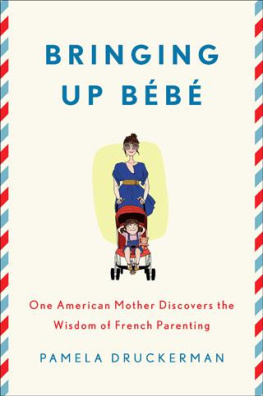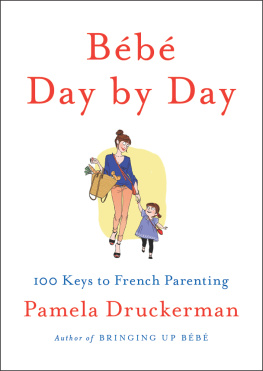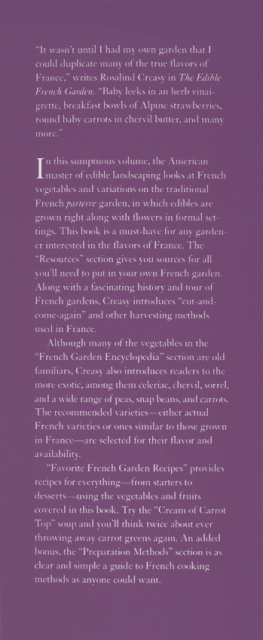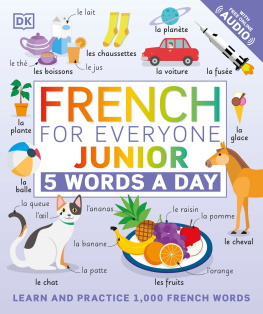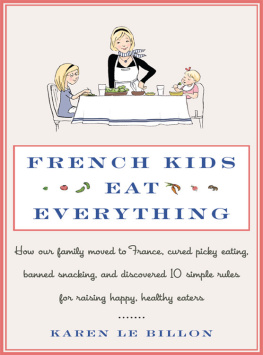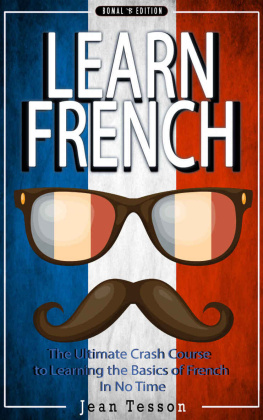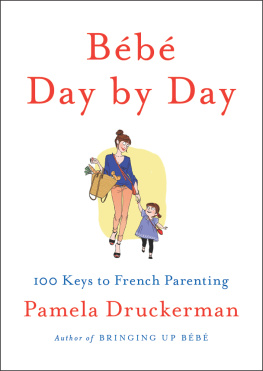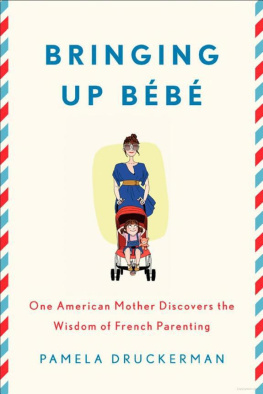Druckerman - Bringing up bébé : one American mother discovers the wisdom of French parenting
Here you can read online Druckerman - Bringing up bébé : one American mother discovers the wisdom of French parenting full text of the book (entire story) in english for free. Download pdf and epub, get meaning, cover and reviews about this ebook. City: New York, United States., France, year: 2012, publisher: Penguin Group US, genre: Children. Description of the work, (preface) as well as reviews are available. Best literature library LitArk.com created for fans of good reading and offers a wide selection of genres:
Romance novel
Science fiction
Adventure
Detective
Science
History
Home and family
Prose
Art
Politics
Computer
Non-fiction
Religion
Business
Children
Humor
Choose a favorite category and find really read worthwhile books. Enjoy immersion in the world of imagination, feel the emotions of the characters or learn something new for yourself, make an fascinating discovery.
- Book:Bringing up bébé : one American mother discovers the wisdom of French parenting
- Author:
- Publisher:Penguin Group US
- Genre:
- Year:2012
- City:New York, United States., France
- Rating:4 / 5
- Favourites:Add to favourites
- Your mark:
Bringing up bébé : one American mother discovers the wisdom of French parenting: summary, description and annotation
We offer to read an annotation, description, summary or preface (depends on what the author of the book "Bringing up bébé : one American mother discovers the wisdom of French parenting" wrote himself). If you haven't found the necessary information about the book — write in the comments, we will try to find it.
Abstract: The secret behind Frances astonishingly well-behaved children. When American journalist Pamela Druckerman has a baby in Paris, she doesnt aspire to become a French parent. French parenting isnt a known thing, like French fashion or French cheese. Even French parents themselves insist they arent doing anything special. Yet, the French children Druckerman knows sleep through the night at two or three months old while those of her American friends take a year or more. French kids eat well-rounded meals that are more likely to include braised leeks than chicken nuggets. And while her American friends spend their visits resolving spats between their kids, her French friends sip coffee while the kids play. Motherhood itself is a whole different experience in France. Theres no role model, as there is in America, for the harried new mom with no life of her own. French mothers assume that even good parents arent at the constant service of their children and that theres no need to feel guilty about this. They have an easy, calm authority with their kids that Druckerman can only envy. Of course, French parenting wouldnt be worth talking about if it produced robotic, joyless children. In fact, French kids are just as boisterous, curious, and creative as Americans. Theyre just far better behaved and more in command of themselves. While some American toddlers are getting Mandarin tutors and preliteracy training, French kids are-by design-toddling around and discovering the world at their own pace. With a notebook stashed in her diaper bag, Druckerman-a former reporter for the Wall Street Journal sets out to learn the secrets to raising a society of good little sleepers, gourmet eaters, and reasonably relaxed parents. She discovers that French parents are extremely strict about some things and strikingly permissive about others. And she realizes that to be a different kind of parent, you dont just need a different parenting philosophy. You need a very different view of what a child actually is. While finding her own firm non, Druckerman discovers that children-including her own-are capable of feats shed never imagined.--Provided by publisher
Druckerman: author's other books
Who wrote Bringing up bébé : one American mother discovers the wisdom of French parenting? Find out the surname, the name of the author of the book and a list of all author's works by series.

